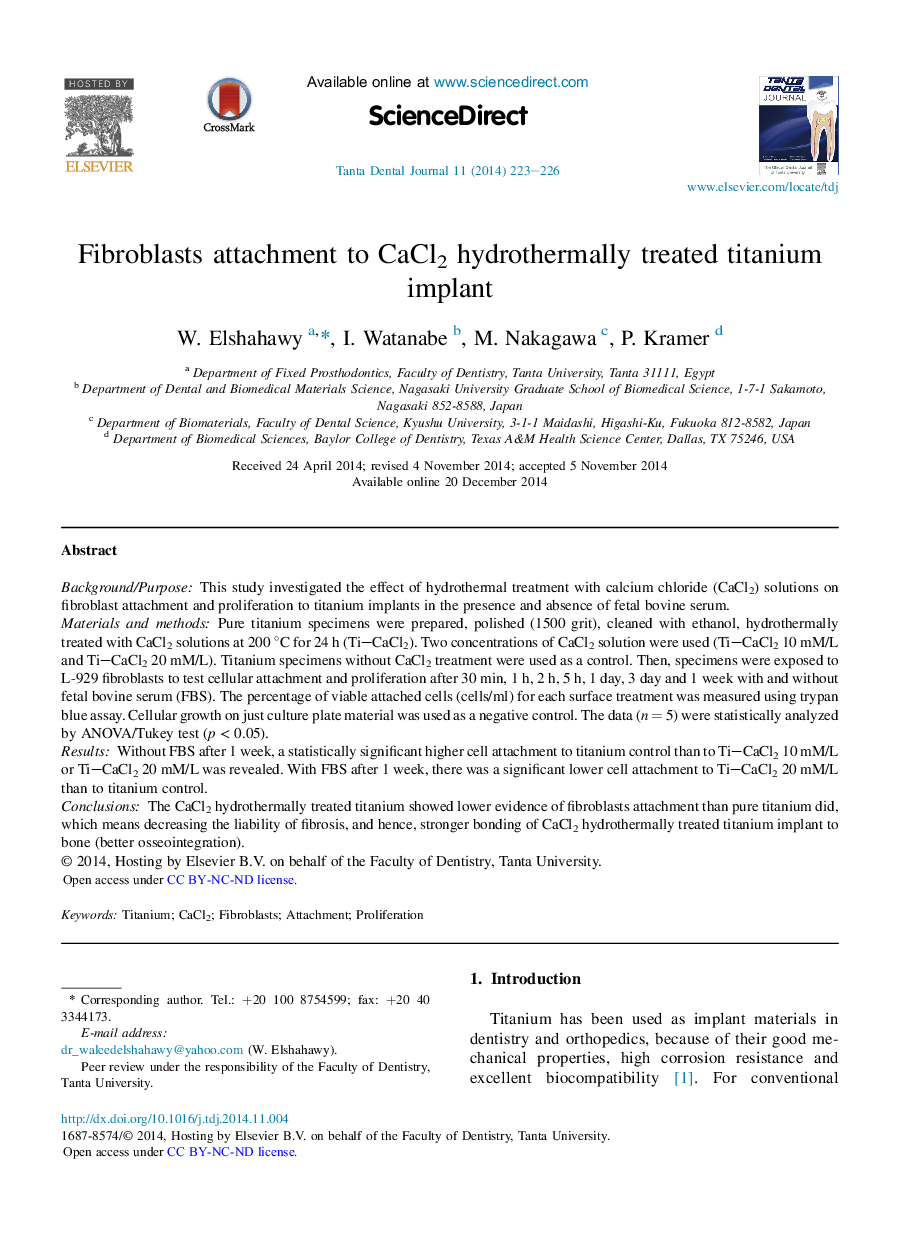| Article ID | Journal | Published Year | Pages | File Type |
|---|---|---|---|---|
| 3179674 | Tanta Dental Journal | 2014 | 4 Pages |
Background/PurposeThis study investigated the effect of hydrothermal treatment with calcium chloride (CaCl2) solutions on fibroblast attachment and proliferation to titanium implants in the presence and absence of fetal bovine serum.Materials and methodsPure titanium specimens were prepared, polished (1500 grit), cleaned with ethanol, hydrothermally treated with CaCl2 solutions at 200 °C for 24 h (Ti–CaCl2). Two concentrations of CaCl2 solution were used (Ti–CaCl2 10 mM/L and Ti–CaCl2 20 mM/L). Titanium specimens without CaCl2 treatment were used as a control. Then, specimens were exposed to L-929 fibroblasts to test cellular attachment and proliferation after 30 min, 1 h, 2 h, 5 h, 1 day, 3 day and 1 week with and without fetal bovine serum (FBS). The percentage of viable attached cells (cells/ml) for each surface treatment was measured using trypan blue assay. Cellular growth on just culture plate material was used as a negative control. The data (n = 5) were statistically analyzed by ANOVA/Tukey test (p < 0.05).ResultsWithout FBS after 1 week, a statistically significant higher cell attachment to titanium control than to Ti–CaCl2 10 mM/L or Ti–CaCl2 20 mM/L was revealed. With FBS after 1 week, there was a significant lower cell attachment to Ti–CaCl2 20 mM/L than to titanium control.ConclusionsThe CaCl2 hydrothermally treated titanium showed lower evidence of fibroblasts attachment than pure titanium did, which means decreasing the liability of fibrosis, and hence, stronger bonding of CaCl2 hydrothermally treated titanium implant to bone (better osseointegration).
